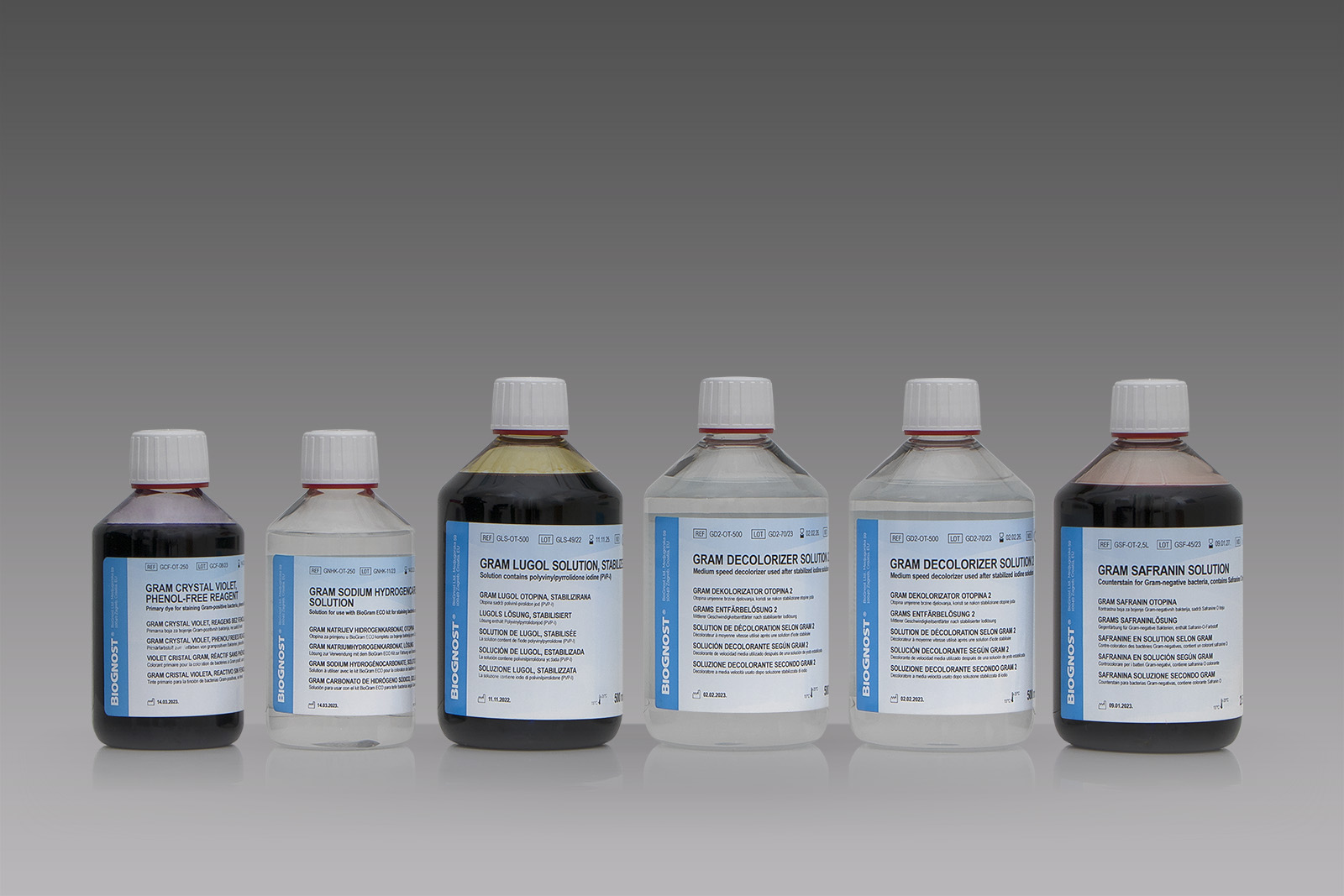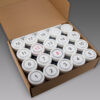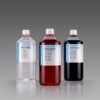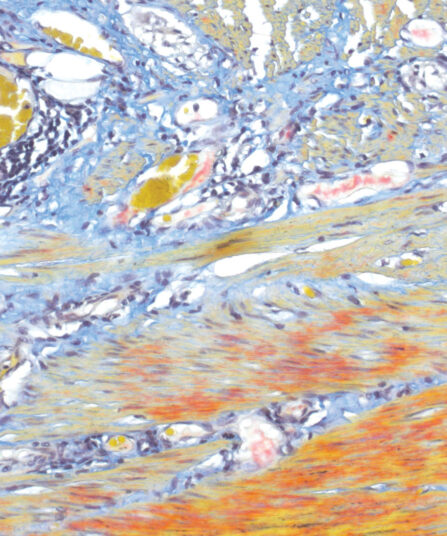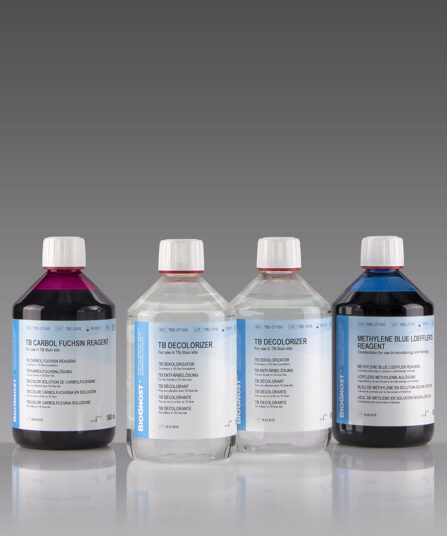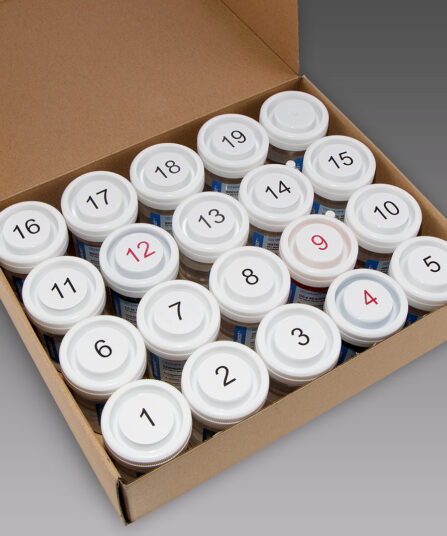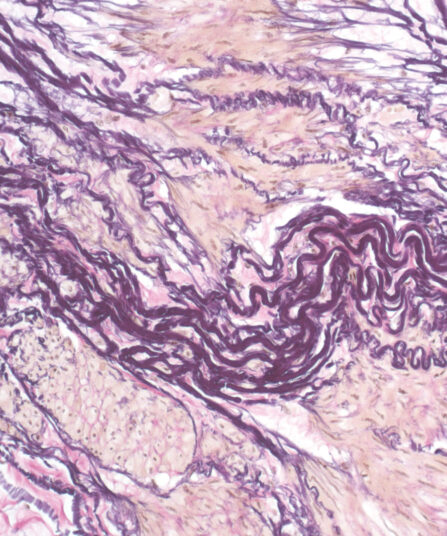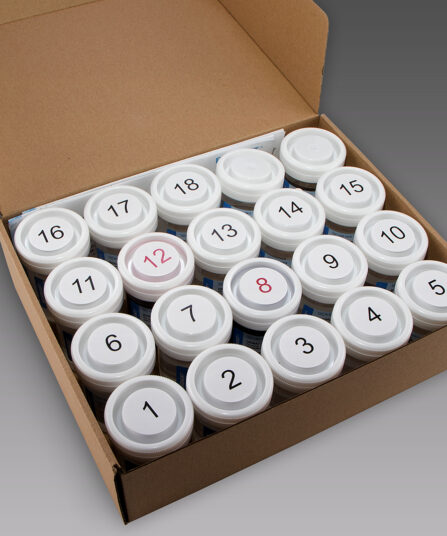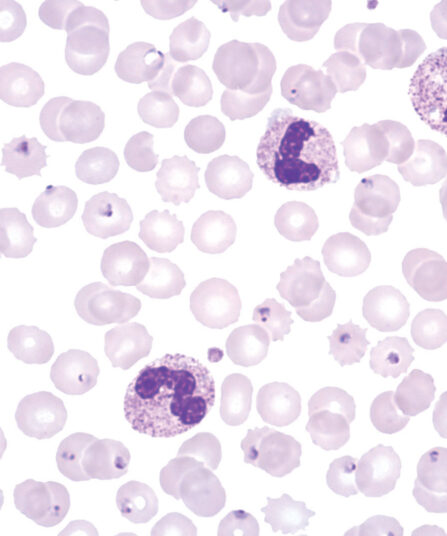Gram staining is a method of differentiating bacterial species and it is commonly known and used in microbiology. It is also one of the most frequently used diagnostic methods in hospital and clinical laboratories. Gram staining differentiates bacteria into two groups: Gram-positive and Gram-negative. That division is based on the two groups’ bacterial membrane structural differences, i. e. their capability of retaining the dye. Gram-positive bacteria have a thicker cellular membrane which enables retaining the dye inside the cell by treating them with iodine solution that creates insoluble iodine and primary dye complex. Gram-negative bacteria have thinner cellular membrane structure which cannot retain the dye. It washes away through the membrane and using counterstaining forms the basis for differentiating between the two bacteria groups. BioGnost’s BioGram Eco kit does not contain phenol and it minimizes exposure to harmful chemicals. The kit contains the following reagents: Gram Crystal Violet, phenol-free reagent, Gram Sodium hydrogencarbonate solution, stabilized Gram Lugol solution, Gram Decolorizer solution 2 (double package) and Gram Safranin solution.
BioGram ECO kit
Four-reagent phenol-free kit for the identification of bacteria according to Gram. Kit contains Gram Crystal violet, phenol free reagent, Gram Sodium hydrogencarbon, solution, stabilized Gram Lugol solution, double amount of Gram Decolorizer solution 2 and Gram Safranin solution as counterstain.
2×50 mL+4×100 mL bottles
Description
Additional information
| Size | |
|---|---|
| Brand | |
| Stain pack |
Related products
Stain Kits
TB-Stain Histo kit
Three-reagent kit for staining acid-fast bacteria (pathogenic mycobacteria) in histology sections, sputum, smears and culture smears according to Ziehl-Neelsen. Heating of the carbol-fuchsin solution is avoided in this protocol hence omitting the release of hazardous phenolic vapours.
Stain Kits
Martius Scarlet Blue (MSB) kit
Seven-reagent kit used for fibrin visualisation, especially of older clusters. This method is a modification of Masson Trichrome and is ideal for studying connective tissue and vascular pathology.
Stain Kits
TB-Stain Hot Kit
Three-reagent kit for staining acid-fast bacteria. Contains TB Carbol Fuchsin reagent, double amount of TB Decolorizer and Methylene Blue Loeffler’s reagent as counterstain.
4 x 100ml bottles.
Papanicolaou Rapid Staining Kit, for 100 Tests
Ready-to-use eight-reagent kit (in 18 containers that can be used as staining jars) for rapid progressive gynecology and non-gynecology cytological samples. Contains xylene substitute as clearing agent and xylene substitute-based medium for permanent covering of samples.
PAP-100T for 100 tests
Stain Kits
Elastica-Van Gieson kit
Four-reagent kit for staining elastic fibres and differentiation between elastic tissue, collagen and other types of connective tissue. The rapid method enables a satisfactory result with shorter section staining time.
HE Rapid Staining kit- frozen and paraffin sections
Ready-to-use eight-reagent kit (in 16 containers that can be used as staining jars) for rapid HE staining of frozen and paraffin tissue sections in histopathology. Contains xylene substitute as clearing agent and xylene substitute-based medium for permanent section covering.
For 100 tests.
Stains Reagents And Dyes
Rapid Romanowsky (Diff Quik) Stain Kit 3×0.5L
Stain Kits
Field kit 500ml
Ready to use two-reagent kit for rapid and efficient staining and detection of parasites in haematology samples. Primarily used for staining thin and thick blood smears (dense drop) for purpose of diagnosing blood parasites. Reagents are stored in containers that can be used as staining jars.

